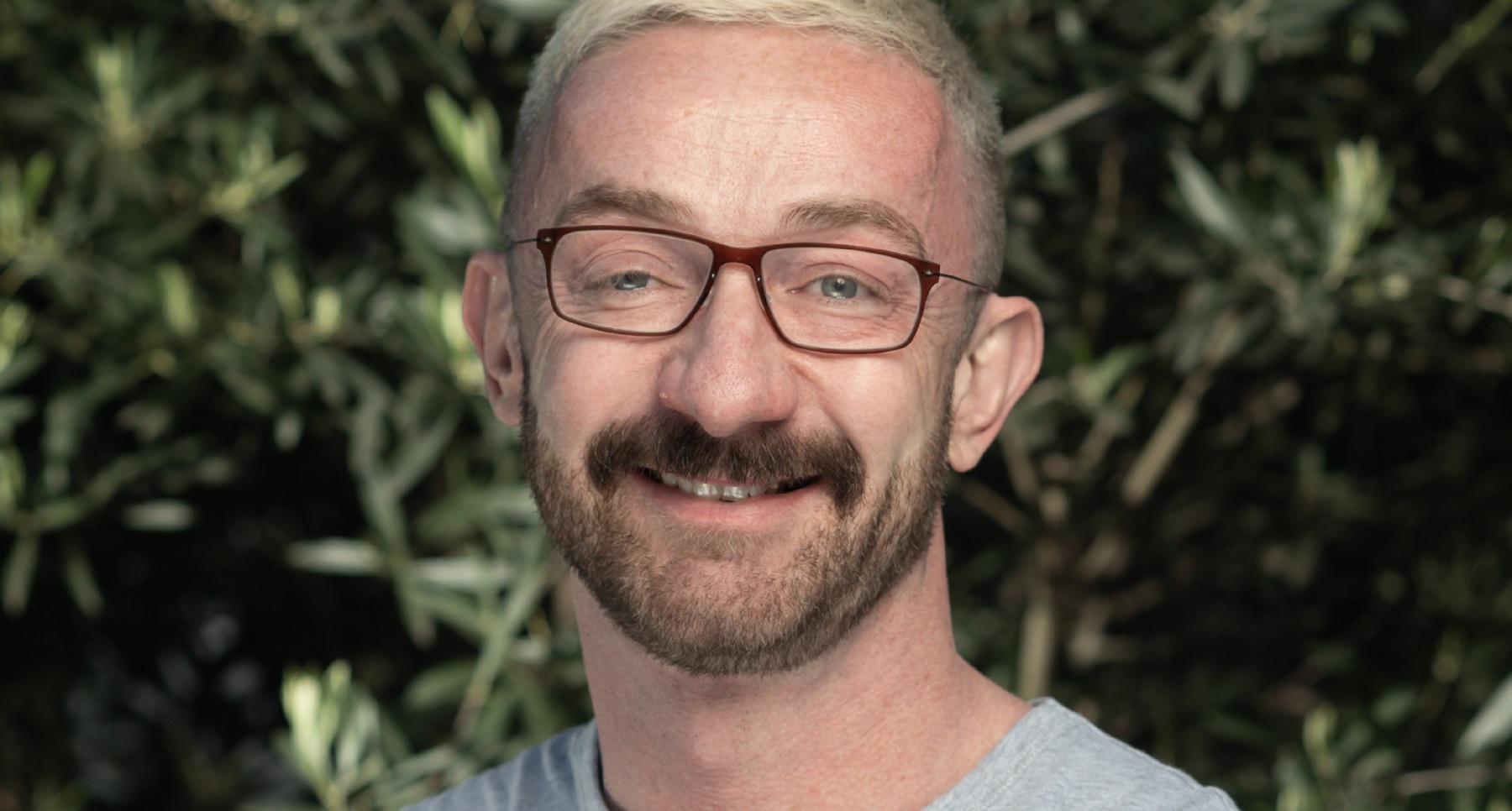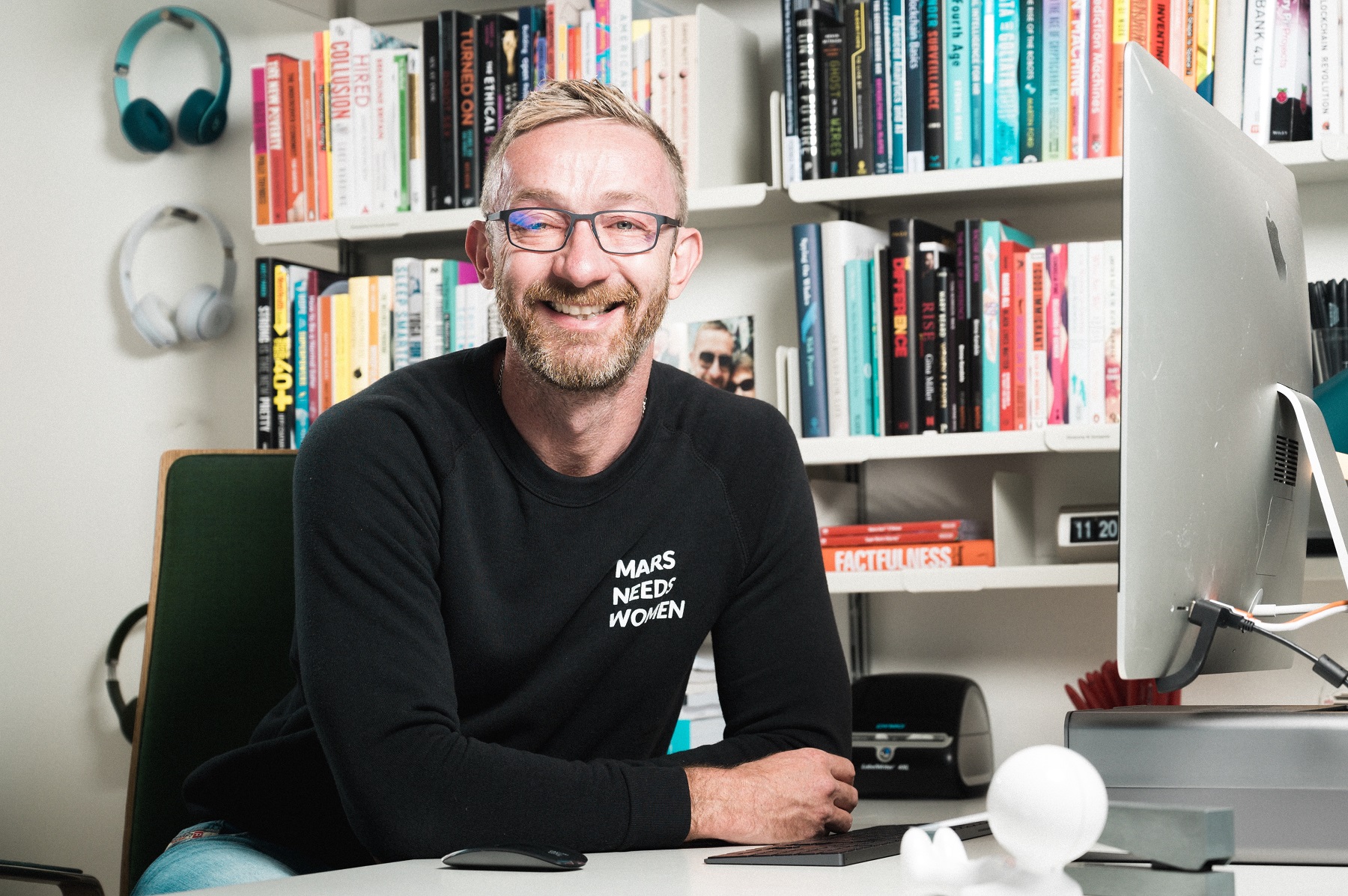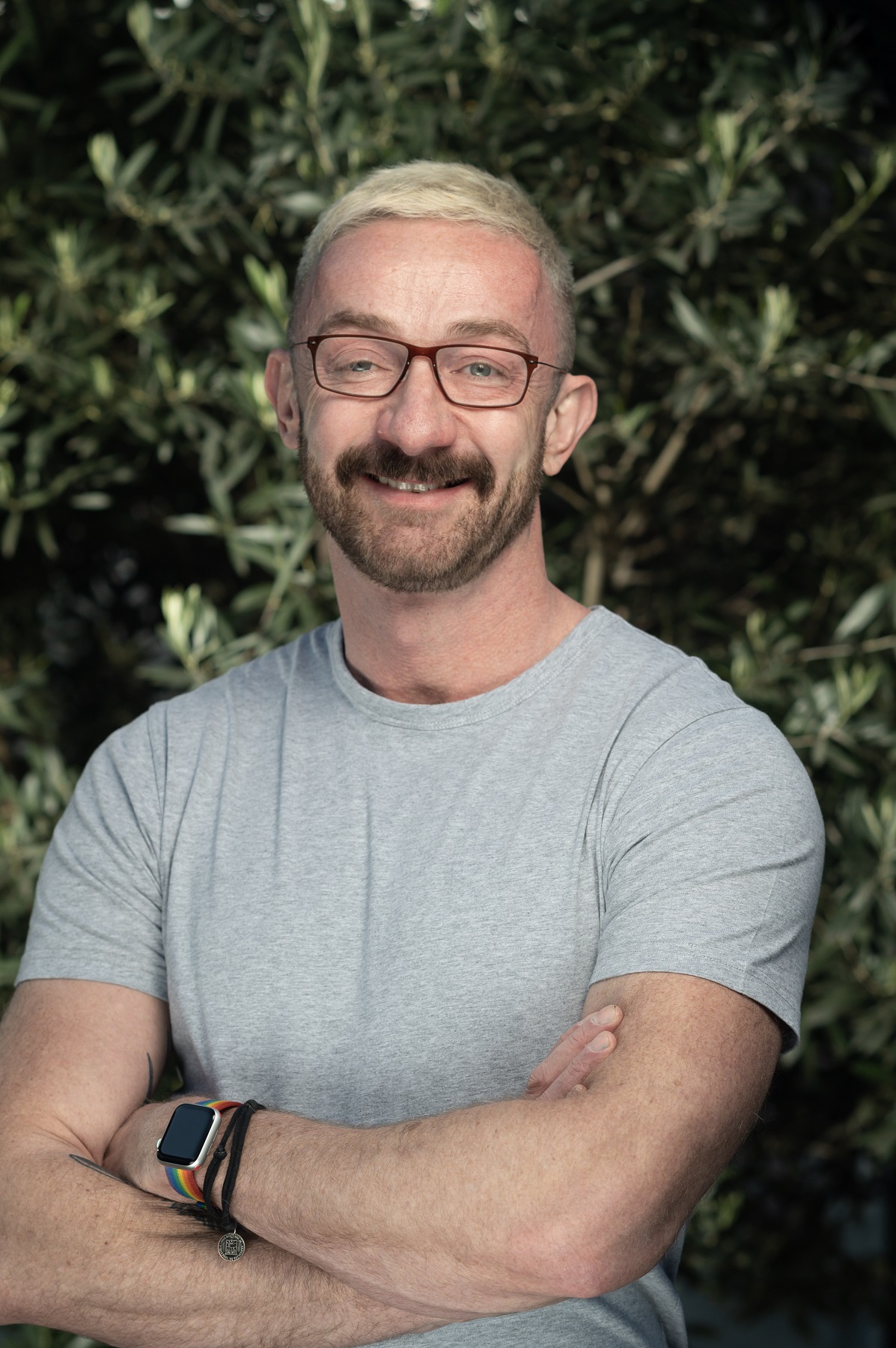‘Ending 26 years of shame – why I finally told my mum about my HIV’
Writer Glenn Elliott shares his story as HIV charity Terrence Higgins Trust launches its amazing new stigma-busting 'Can’t Pass It On' campaign.
By Will Stroude

The medical progress made in the fight against HIV has been meteoric – but a new survey from HIV charity Terrence Higgins Trust shows public awareness is lagging way behind. That’s why writer Glenn Elliott is finally sharing his story nearly three decades on from his HIV diagnosis.
The medical progress made in the fight against HIV has been meteoric – but a new survey from HIV charity Terrence Higgins Trust shows public awareness is lagging way behind. That’s why writer Glenn Elliott is finally sharing his story nearly three decades on from his HIV diagnosis.
It was 1992 and I was 20 years old. A HIV diagnosis then was terminal. I was devastated.
Getting any serious medical diagnosis is traumatic. Being told you have HIV with the shame and stigma that disease carries is unbearable. When I came out as gay to my family just two years earlier my father said “Watch out son, you’ll get AIDS”. I was filled with shame, regret and remorse that he had been right.
I was far too ashamed and frightened to tell my parents and family. My mum was already struggling with my father’s advancing mental illness and telling her that her 20 year-old son was going to die of AIDS in the next ten years seemed unbearably cruel. I just couldn’t do it.
What hurt me perhaps the most was that I couldn’t cry on my mother’s shoulder. All I wanted to do was collapse in her arms and have her hold me and tell me that she loved me. I thought long and often about this but never escaped the crushing weight of shame and the absolute terror of seeing what it would do to my parents when they found out.
Untreated HIV is terribly cruel. It doesn’t kill you, it just reduces your immune system to dust. Your body then becomes overrun with infections that healthy people fight off without notice, every single day.
By my mid twenties I was a home expert in diseases like Kaposi’s sarcoma (disfiguring skin cancers), Cytomegalovirus (blindness), Cryptosporidiosis (persistent diarrhea), Toxoplasmosis (brain abscess) or Candida of the oesophagus (mouthful of cotton wool and an inability to eat). There are hundreds of opportunistic infections that can and will take hold of you when you have no immune system.

But five years after my diagnosis, trials started to show that combination therapy – taking three anti-HIV drugs at the same time, could suppress the virus levels in the body to an undetectable level. That meant that there was too little virus in the body to cause damage.
This was the game changer in HIV treatment. On the day of my diagnosis it didn’t exist. All we had was AZT, an abandoned cancer drug that was given in high doses causing awful side effects. It would work for a few months before your virus mutated and rendered it useless.
By 2014 a scientific breakthrough happened. Something thought to be impossible. The discovery that treatment also stops HIV from being passed on to sexual partners. This has since been backed up by two major studies monitoring hundreds of couples where one is HIV positive and on effective treatment and the other is HIV negative. They had sex without condoms thousands of times and there were zero HIV transmissions.
That’s why we can say without doubt that people living with HIV – like me – can’t pass it on. Not won’t or don’t, but can’t. That’s also why Terrence Higgins Trust has launched its amazing stigma-busting Can’t Pass It On campaign.
Not only was I alive and likely to stay alive to enjoy all the up and downs of a normal life, I could even have a normal sex life with my husband and partner. Having to use a condom with your husband of nine years is a constant reminder that something is wrong and getting rid of that was incredible. Knowing you are not an infectious danger to others is a luxury I had never dared dream of.
I’ve wanted to write about my experience for many years in the hope that it might help someone else struggling and, frankly, because I thought it might be cathartic.
I also wanted to increase people’s awareness of the facts about HIV. For example, new polling from Terrence Higgins Trust – a charity I’ve supported and worked with for many years – has just found just 19% of Brits know that people living with HIV and on effective treatment can’t pass it on.
The charity also found that almost half of people polled (48%) would feel uncomfortable even kissing someone with HIV – someone like me. That’s unacceptable and I truly believe this stigma stems from ignorance and outdated perceptions of HIV.

I so strongly wanted to play a part in tackling all the mistruths about HIV. But this was impossible, because after 26 years I had still not told my family. That changed last month when following six months of therapy I took the risk. My mum was visiting me in London, the mood seemed right and I thought “It’s now or never”.
“Mum”, I said, “there’s something I want to tell you. It’s kind of big but it’s very much in the past, it’s 26 years ago and I’m fine, there’s nothing to worry about.”
She sat upright and tried to not look worried but clearly she was desperate to know what I would say next.
“Mum, I’ve had HIV for 26 years”.
I’d thought about this moment for over two decades and had replayed scene after scene in my head of what would happen. All of them were disastrous. I worried she wouldn’t understand, wouldn’t believe me when I said my medication was fine, would be crushed herself by the shame and stigma. I was so wrong.
She put her arms around me and pulled me to her chest and told me that she loved me. I cried for nearly half an hour.
She told me she was so sorry I’d had to carry the burden myself and I could have told her anytime. She would always have been there for me. Later that night she told me how proud she was of the life I had built for myself while living under a cloud.
I’m committed now to writing about HIV and the happy, fulfilled and worthwhile lives we can live with it. Treatments work now, it’s the shame and stigma we need to get rid of next.
Glenn Elliott is a writer and journalist who lives between London and Berlin. You can find out more about Terrence Higgins Trust’s Can’t Pass It On campaign on its website.
